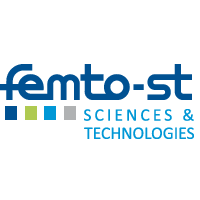A paper accepted in Nature Chemistry!
We present a new concept for the fabrication of up to 1μm long polymer fibres on insulating substrates. The novelty of our approach is that first, the chosen dimaleimide molecules perform a chain-like (and not a step-like) growth via a radical polymerization, second, that the polymerization is initiated from a two-dimensional gas phase rather than from an intermediate self-assembled structure, and third, that the cations of the chosen alkali-halide substrate interact with the molecule’s oxygen atoms in such a way that both, surface-induced and UV-assisted initiation of the polymerization are facilitated. This innovative approach is now accepted for publication in Nature Chemistry (05/30/2018).
This article result from the collaboration of F. Cherioux with C. Loppacher in IMN2P (Marseille) and M. B Watkins (University of Lincoln, UK).
Our proposal consists in transposing the concept of a TI to crystalline organic materials, which will meet the future technological requirements for low-cost and eco-friendly materials, besides being flexible. The project targets unambiguous signatures of an organic topological insulator (OTI), and proof-of-principle meso- and nano-devices for electronic and thermal transport. The project also targets original insights into the unique quantum spin Hall state, by means of high resolution spin-sensitive imaging. The chosen strategy is strongly multidisciplinary, and covers a broad range from materials science, to surface physics, electronic device physics, and computational chemistry and physics. The consortium gathers experts from three leading academic research laboratories, bringing complementary approaches and backgrounds. Institut FEMTO-ST will lead the chemistry side of the work plan. Institut Néel will be in charge of combined structural, vibrational, and electronic transport studies, and will also conduct the theoretical work. IPCMS will perform low temperature microscopy and spin-polarized spectroscopy.
This project is funded by the Agence Nationale de la recherche, challenge #3 (défi 3) of the 2015 action plan of the ANR, devoted to stimulating industrial renewal.


